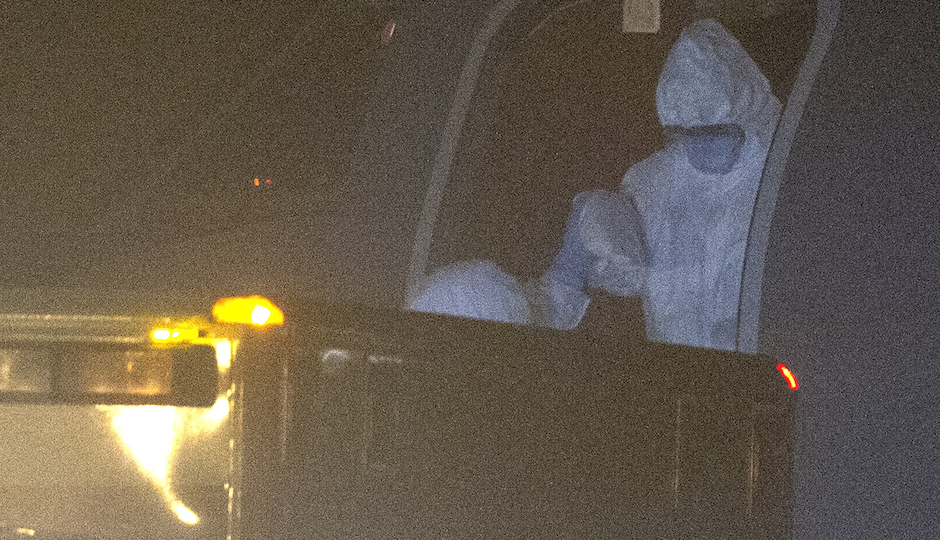Officials: “We Have the Tools” To Manage Ebola in Philly

Nurse Nina Pham, right, is assisted off of a plane to a waiting ambulance after arriving at Frederick Municipal Airport, Thursday, Oct. 16, 2014, in Frederick, Md. Pham, a nurse at Texas Health Presbyterian Hospital in Dallas, was diagnosed with the Ebola virus after caring for Thomas Eric Duncan before he died of the same virus. Philadelphia City Council held a hearing Thursday to determine whether the city is ready for Ebola’s arrival here. | Associated Press
City Council held a hearing Thursday to determine if Philly is ready to meet the challenge of Ebola appearing here. The answer? Yes. Maybe.
Mostly, there was confidence. But there was one caveat.
Philadelphia health and emergency management officials are setting the expectation bar very high, claiming the city is fully prepared for the possibility of an Ebola outbreak here, while, trying to tamp down the fears that have outpaced the disease itself.
Samantha Phillips is Director of the Office of Emergency Management.
“We have the tools and expertise to manage Ebola in the city of Philadelphia,” said Phillips.
KYW reports that Fire Commissioner Derrick Sawyer says paramedics are upgrading their equipment to meet easily achievable CDC standards to protect personnel against the virus.
But Joseph Schulle, head of the firefighters’ union Local 22, has no faith in the CDC standards and believes that so-called ‘Class B’ hazmat suits are needed for the paramedics should they have to respond to a potential Ebola outbreak.
“What the CDC has approved as a minimum standard is a plastic gown,” Schulle said today. “The gown has a huge area of exposure at the neck, it’s paper thin, and it’s just not an acceptable alternative to the Class B suit. The gown that they have ordered and are going to be putting into service simply is not close to that level of protection. Our responders are going to be at risk, and they’re going to be at risk for potentially exposing their friends and their families when they go home.”
But Commissioner Sawyer said that hazmat suits are not appropriate.
6ABC says fire officials aren’t just upgrading equipment. They’re also changing tactics:
Fire Commissioner Derrick Sawyer says 911 operators now ask some critical new questions before transporting a sick patient.
“Callers are asked if they have traveled to the affected West African countries or have been in contact with anyone who has travelled there,” Sawyer said.
If the answer is yes, the paramedics responding to the call suit up with protective gear.
City officials hoped Thursday’s hearing helped stamp down a sense of panic about the virus, Newsworks reports.
Councilman Curtis Jones called for the hearing Thursday, saying it was time to put Ebola fears to rest in Philadelphia and show the city is prepared if someone were diagnosed here.
“We want to replace fear with facts because an ounce of prevention is worth a pound of panic,” Jones said


